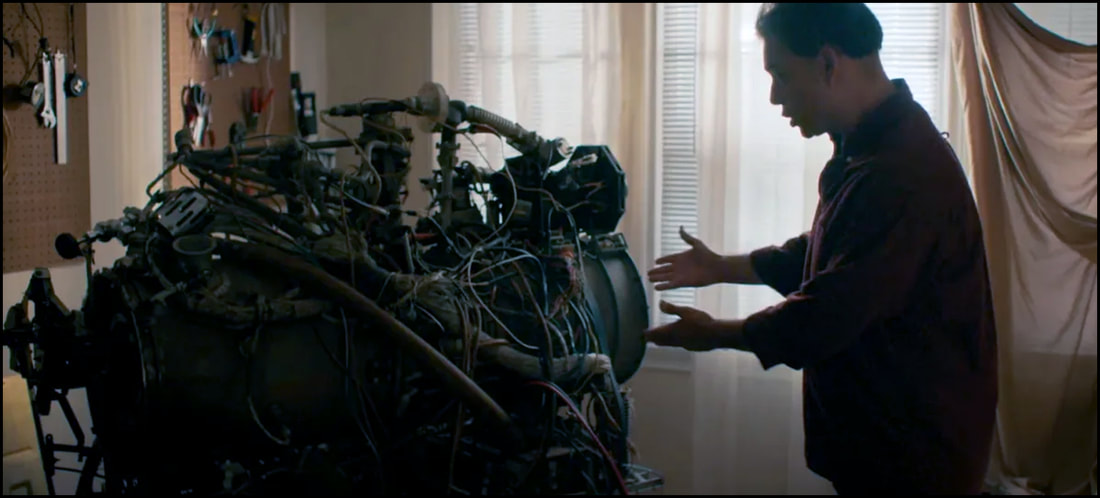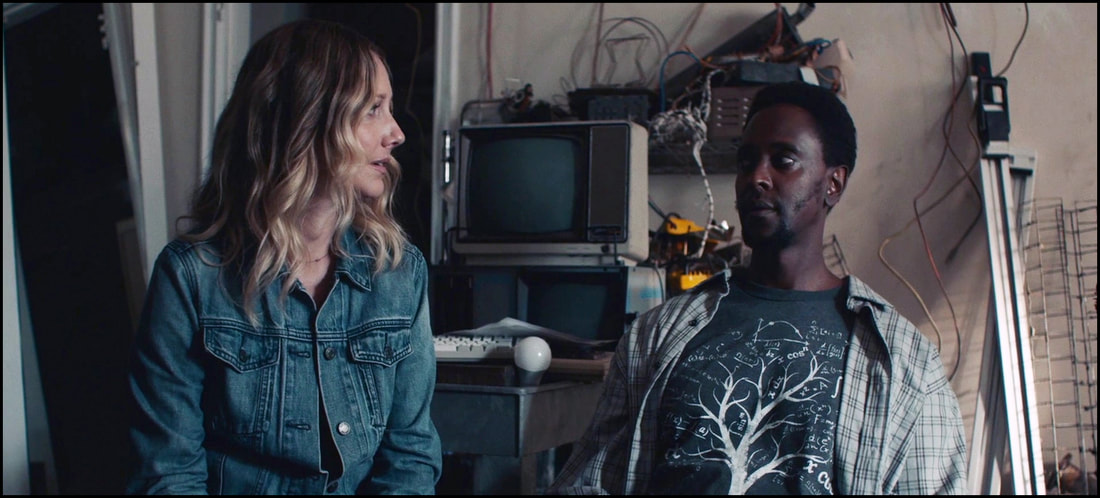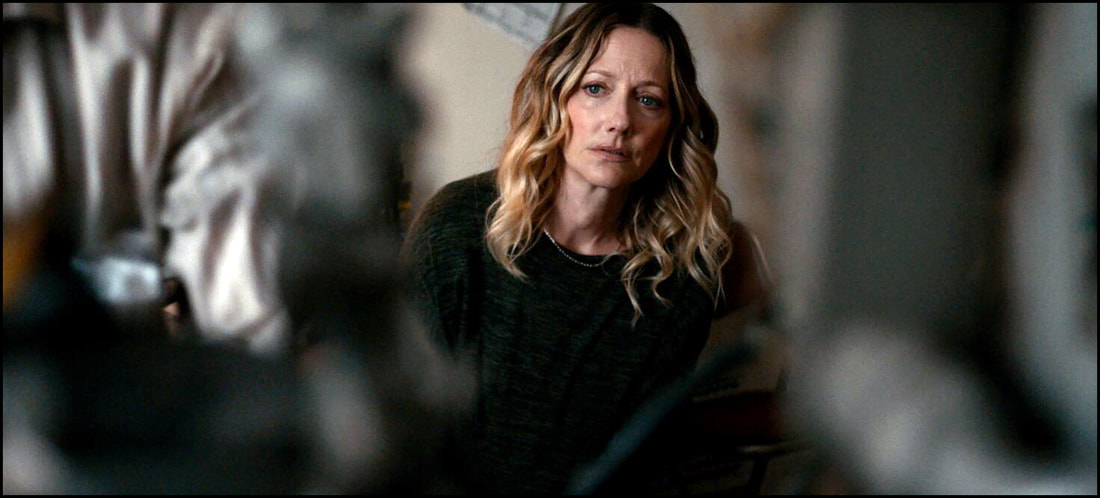Aporia: (noun) - an irresolvable internal contradiction or logical disjunction in a text, argument, or theory.
“It’s not nice to fool Mother Nature.”
For those unaware, the above is little more than an ad slogan made famous during the 1970’s for Chiffon Margarine. Essentially, what would happen is Mother Nature herself – embodied by actress Dena Dietrich – would show up only to be fooled into thinking that she was tasting margarine instead of real butter. As a consequence of the ruse, she’d look at the camera, mildly threateningly say “It’s not nice to fool Mother Nature,” and then release environmental wrath in the form of thunder, lightning, wind, or what have you. Everyone would learn their lesson (especially Chiffon, which ultimately died out as a brand in U.S. and Canada sometime in 2002), and a good time was had by all.
The moral to each of these clever commercials was that trickery against the natural establishment – no matter the shape, size, intent, or form – will likely always be exposed for what it is and will provoke a necessary retribution of perhaps an even greater magnitude. So … don’t try it, users, unless you’re willing to suffer whatever response Fate – or Mother Nature – might unleash.
This central idea has long been the lesson provided to a good number of time travel stories. For example, renowned Science Fiction author Ray Bradbury’s famous short story – “A Sound Of Thunder” – postulates that visitors sent back in time might irrevocably alter their future by some small and/or inadvertent action in the distant past. In the tale, an event as small as unintentionally stepping on a butterfly could fell a series of dominos across time and space, ultimately putting an entire civilization in ruin.
Get it? “It’s not nice to fool Mother Nature!”
Succinctly, audiences have seen stories like Aporia before, and they’ve seen them plenty of times. In fact, one might argue that the central tenet to any if not all time travel stories is that the players are going to pay a price for fooling Mother Nature, and it’s going to eventually be a very big one. So, critically, the only distinguishing characteristic to any new temporal manipulation yarn is how well its narrative pieces are assembled; and – on that front – Aporia makes for a compelling visit or, at least, one that holds it own in the growing pantheon of Butterfly Effect tomes. It never provides anything fresh or all that different, but it does tinker in a small way with the construct that might draw the attention of cinema academics but probably no one else.
From the film’s IMDB.com page citation:
“Since losing her husband, Sophie has struggled to manage grief, a full-time job, and parenting her devastated daughter, but when a former physicist reveals a secret time-bending machine, Sophie will be faced with an impossible choice.”
I firmly believe that all of us cradle some event in the past that each of us secretly wishes there were a means to alter in ways big and/or small; and that’s the central issue that Aporia confronts reasonably eloquently. For Sophie (played by the luminous Judy Greer), it’s the death of her loving husband Mal (Edi Gathegi), an incident that put both her and her daughter Riley’s (Faithe Herman) lives spiraling out of control. Naturally, Sophie isn’t going to expend countless hours evaluating the pros and cons of using a device to change history – to reach back in time and kill the drunk driver instead of seeing her husband die as a consequence – because her inconsolable grief wouldn’t allow her to. However, once she commits the act – one that brings Mal back but truly only transfers the grief onto another mother and daughter – Sophie’s true conflict begins.
As you can see, Sophie – the everyman of a fairly straight forward melodrama that truly only uses the Science Fiction elements to spin its yarn – isn’t all that different from you or me. Given the same set of circumstances, each of us would likely do the same – we’d bring back a lost loved one – and then we’d be spurred by our guilt to try to help those we’d inadvertently harmed along the way. But in doing so – by employing the same device to now manipulate time even further – Sophie only traps herself further down than rabbit hole wherein Fate – the aforementioned ‘Mother Nature’ – will eventually unleash a fury that’ll change the world into something it was never quite meant to be.
So, yes, if you’ve watched any time travel story, then it’s pretty clear that this is territory that’s been amply explored before. Nothing new – well, except for perhaps how this particular device works – is added to the equation; but the performances by all involved here are quite good, so much so that I found it hard not to be drawn into the occasionally heady web. Greer has always been an actress on my radar – I’ve enjoyed her work in everything I’ve seen – and Aporia does give her more emotional substance to explore. She’s up to the task here, and she’s well-matched with Gathegi as the man who’s momentarily mortified to learn how he’s been drawn into such unfortunate circumstances. Their journey of opening up a temporal Pandora’s box and slowly discovering what they’ve undone along the way makes this an experience worth its running time.
The film closes on a note of high uncertainty. It’s one of those finales that hangs open, encouraging audiences to ultimately guess the fate of those who spent the previous 100+ minutes tempting Fate. (Yes, yes, and yes: I get that a happy ending is strongly implied, but as we’re given no particulars it’s still inconclusive to this critic.) Writer/director Jared Moshé probably wants viewers to now go off and talk about his ‘did she or didn’t she?’ moment, and – argh – I’m just never a fan of such hocus-pocus. Like the characters manned up to make a hard choice, I prefer stories that definitively do the same. Leave those shenanigans to lesser features.
But – and I do promise this is my last observation – kudos for making what must be one of filmdom’s ugliest time machines! Its sheer hideousness ably demonstrates the unsightliness of the choices these characters faced, and that alone spoke volumes when it mattered most.
Aporia (2023) was produced by Armian Pictures, BondIt Media Capital, Buffalo 8 Productions, and Soapbox Films. DVD distribution (for this particular release) has been coordinated by the fine folks at Well Go USA Entertainment. As for the technical specifications? While I’m no trained video expert, I thought that the sights-and-sounds were exceptional from start-to-finish. Lastly, if you’re looking for special features? The disc includes the theatrical trailer along with a short ‘making-of’ featurette for fans to enjoy.
Recommended.
While there’s little new added to the growing universe of time travel and/or temporal paradox stories, Aporia is held up on the shoulders of its performers; and their emotional discoveries do make for some quality screen experiences. Greer is quite good as the film’s lead – I’d love to see her do more roles with this range – and those around her certainly prove that they’re up to the challenge of pulling at the audience’s heartstrings each time it’s tried. True genre fans will appreciate the heartfelt story, but casual fans might grow a bit weary, knowing such territory has been trod before. Watch it for Greer and Gathegi’s work, though, and you shouldn’t be disappointed.
In the interests of fairness, I’m pleased to disclose that the fine folks at Well Go USA Entertainment provided me with a complimentary Blu-ray of Aporia (2023) by request for the expressed purposes of completing this review. Their contribution to me in no way, shape, or form influenced my opinion of it.
-- EZ




 RSS Feed
RSS Feed